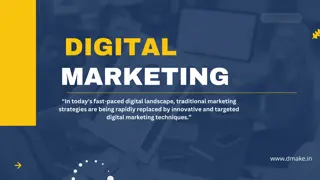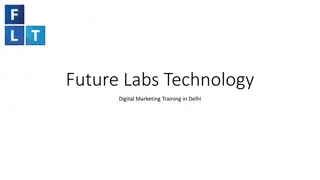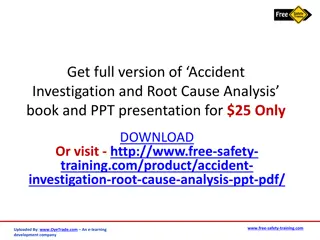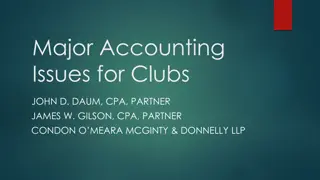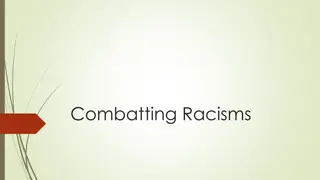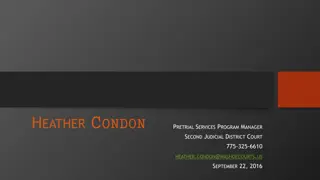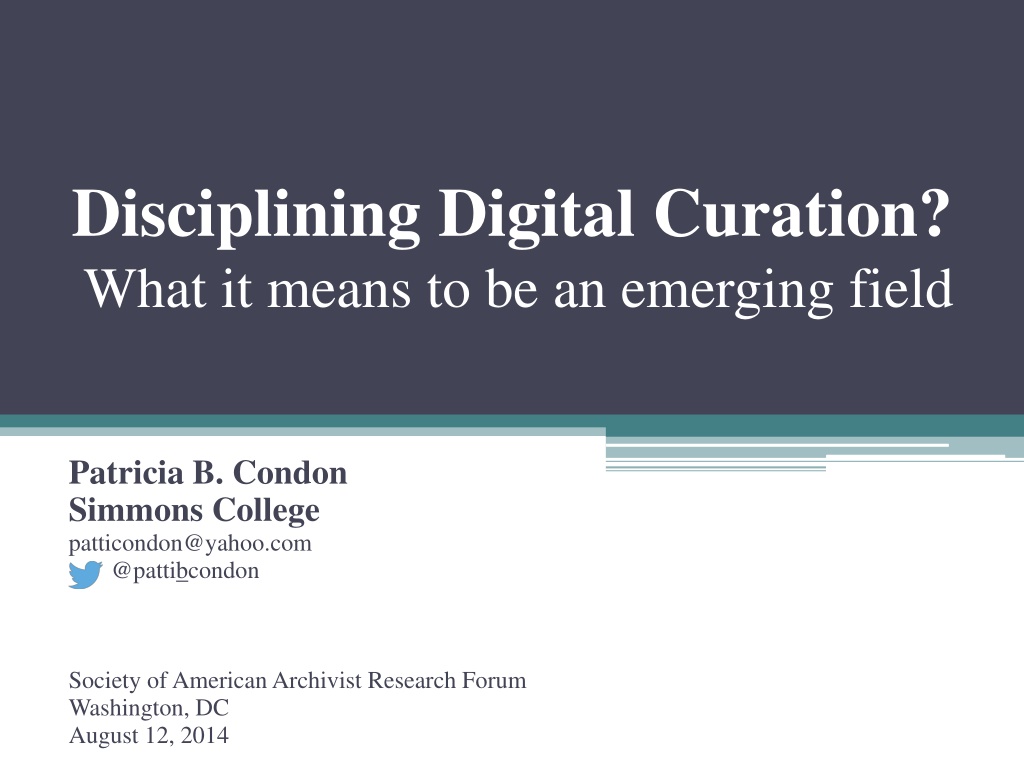
Understanding the Emerging Field of Digital Curation
Explore the emergence of digital curation as an autonomous discipline and its significance within the information landscape. Delve into research questions, methodologies, and conceptual frameworks shaping this dynamic field.
Download Presentation

Please find below an Image/Link to download the presentation.
The content on the website is provided AS IS for your information and personal use only. It may not be sold, licensed, or shared on other websites without obtaining consent from the author. If you encounter any issues during the download, it is possible that the publisher has removed the file from their server.
You are allowed to download the files provided on this website for personal or commercial use, subject to the condition that they are used lawfully. All files are the property of their respective owners.
The content on the website is provided AS IS for your information and personal use only. It may not be sold, licensed, or shared on other websites without obtaining consent from the author.
E N D
Presentation Transcript
Disciplining Digital Curation? What it means to be an emerging field Patricia B. Condon Simmons College patticondon@yahoo.com @pattibcondon Society of American Archivist Research Forum Washington, DC August 12, 2014
Research Questions Is digital curation emerging as an autonomous discipline? In what ways do interviewees describe the relationship of digital curation to areas within the information disciplines? Are there indicators that suggest digital curation is emerging as a discipline in its own right? Where does digital curation fit within the educational landscape? To what extent do interviewees express the role of education in the knowledge transfer of digital curation practices, skills, and theories?
Methodology Methodologies and Sources of Data Total Content Analysis (three sub-samples, 2001-2013) 460 Qualitative Interviews (international sample from digital curation community) 14
Conceptual Framework Institutional Infrastructure Intellectual Field of Inquiry Elements of a discipline and shallow consensus Professional Association Styles of Subjectivity Academic Organizational Unit Narrative Accumulated Knowledge Curriculum Publishers Discursive Community Social Networks D Agostino, F. (2012). Disciplinarity and the Growth of Knowledge. Social Epistemology: A Journal of Knowledge, Culture and Policy, 26:3-4, 331-350.
Explore the Data Journals by Discipline Academic Field of Publication of the top 5% most cited articles retrieved from Scopus and Web of Science, 2001-2013(n=170) 3% 7% 31% 12% Information Life Technology Physical Social General 19% 28%
Explore the Data Discipline by Keyword Information Technology Life Physical Social General 8 17 21 12 8 Data Archiving 1 2 10 Data Curation 3 1 - - Data Preservation 1 2 - 1 - 2 Data Stewardship - - 1 2 - - Digital Archiving 3 4 3 - - - Digital Curation 4 - - - - - 28 11 Digital Preservation 1 2 2 - Digital Stewardship - - - - - - Multiple 3 2 2 - - -
Findings Is digital curation emerging as an autonomous discipline? Digital curation is not an autonomous discipline, but does meet several of the criteria to indicate its potential for emergence. Where does digital curation fit within the educational landscape? It fits well with LIS/Archive education programs, but the complete answer is more complex.
Thank you to the 2014 SAA Research Forum organizers. Thank you to the IMLS-funded Building the Future of Archival Education and Research Initiative, and the Graduate School of Library and Information Science at Simmons College for supporting this research through a doctoral fellowship. Thank you to my interview participants for being generous with their time, and thoughtful and candid in their remarks. Thank you to my dissertation committee: Jeannette Bastian, Ross Harvey, Martha Mahard, and Nancy McGovern. Special thanks: Eliot Wilczek and Heather Soyka. Thank you! patticondon@yahoo.com @pattibcondon






